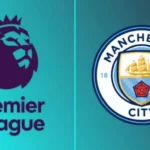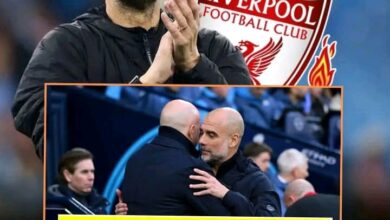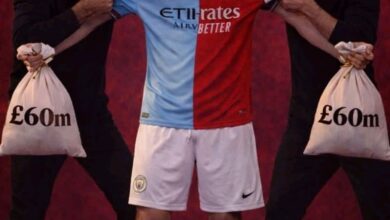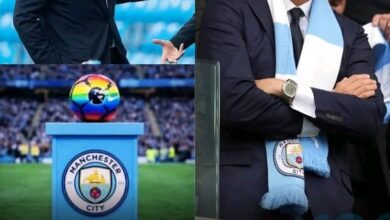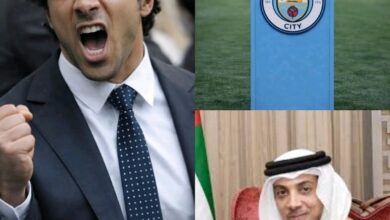Exclusive: Man City ‘confident’ over 115 charges after deal agreed
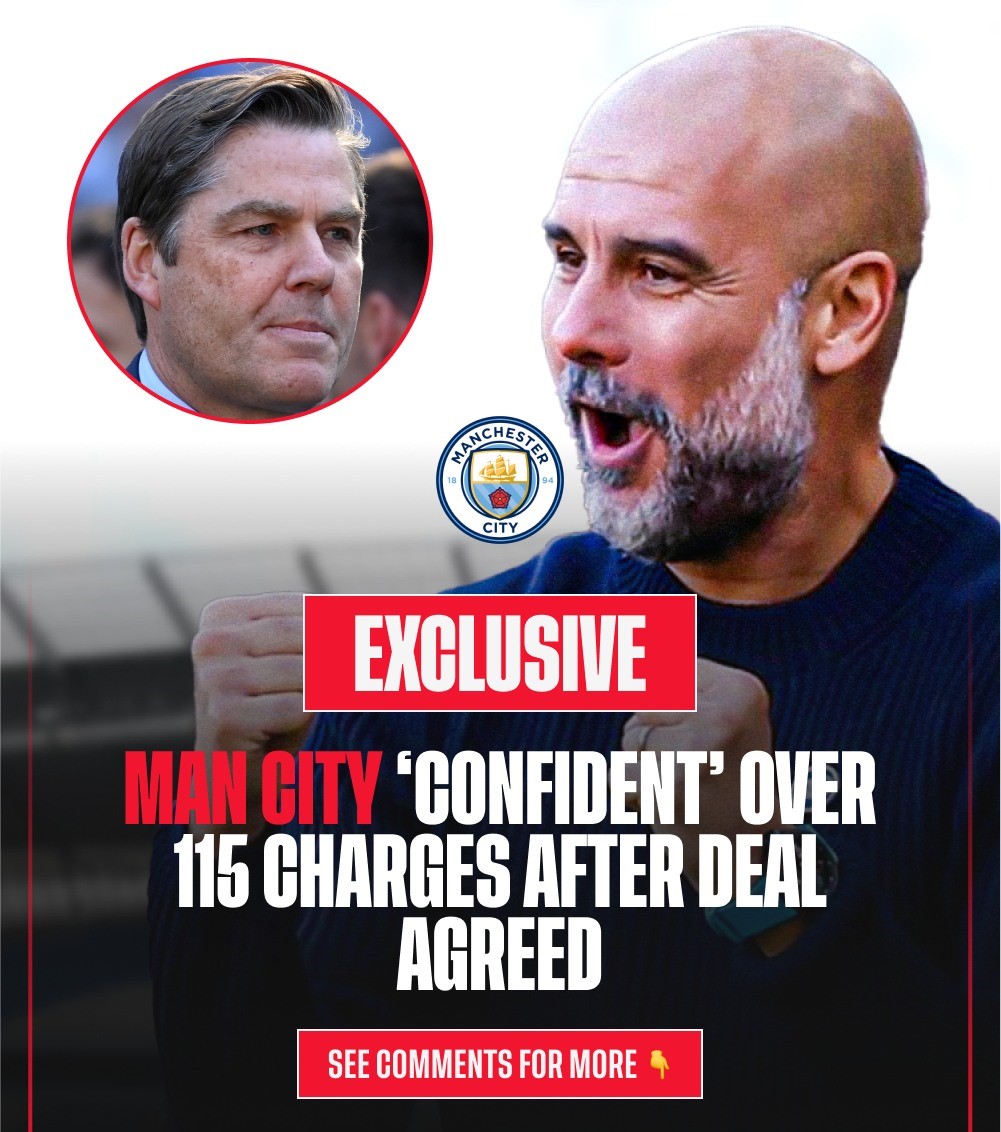
Manchester City Football Club finds itself at the center of one of the most significant financial investigations in Premier League history. The club faces 115 charges related to alleged breaches of Financial Fair Play (FFP) regulations, covering a nine-year period from 2009 to 2018. Despite the gravity of these allegations, recent developments suggest that the Manchester-based club maintains an air of confidence about the eventual outcome of their case.
The charges, formally brought by the Premier League in February 2023, represent a watershed moment for English football’s regulatory framework. They encompass allegations that City concealed payments through third parties by disguising them as legitimate sponsorship revenue, potentially undermining the integrity of financial fair play rules designed to maintain competitive balance and financial sustainability across the league.
The Nature of the Charges
The 115 charges against Manchester City are not merely administrative infractions but represent serious allegations that strike at the heart of modern football’s financial governance. The charges span nearly a decade of the club’s operations, covering the period when City transformed from a mid-table English club into a global football powerhouse under the ownership of Sheikh Mansour and the City Football Group.
The allegations center on the fundamental principle of financial transparency in professional football. According to the Premier League’s case, City allegedly engaged in sophisticated financial engineering to circumvent FFP regulations. These rules, introduced to prevent clubs from spending beyond their means and to promote financial sustainability, require clubs to balance their books over specified periods and limit losses to predetermined amounts.
The specific nature of the alleged breaches involves the disguising of owner investment as commercial sponsorship income. This practice, if proven, would represent a fundamental violation of FFP principles, as it would allow a club to inject unlimited funds while appearing to comply with spending restrictions. The complexity of these allegations explains why the independent commission’s deliberations have extended for months, as investigators must untangle intricate financial arrangements spanning multiple years and jurisdictions.
The Independent Commission Process
The independent commission hearing, which commenced in September of the previous year and concluded in December, represents one of the most comprehensive investigations in Premier League history. The panel of legal and financial experts has been tasked with examining thousands of documents, emails, and financial records to determine whether City violated FFP regulations.
The commission’s work has been conducted in strict confidentiality, with little information emerging about the proceedings or the evidence presented. This secrecy has created an atmosphere of uncertainty within the football community, with rival clubs, media, and supporters left to speculate about the potential outcomes and timeline for a decision.
The complexity of the case cannot be overstated. The commission must examine not only the financial arrangements themselves but also the intent behind them, the knowledge of key personnel, and the broader context of City’s commercial operations during the relevant period. This requires expertise in international finance, sports law, and regulatory compliance, explaining why the deliberation process has been so extensive.
Signs of Confidence: The Puma Partnership Extension
Perhaps the most significant indicator of Manchester City’s confidence in their case is the recent extension of their partnership with German sportswear manufacturer Puma. The new ten-year deal, reportedly worth a minimum of £1 billion, represents one of the largest kit sponsorship agreements in football history.
The timing of this announcement is particularly noteworthy. With the commission’s verdict still pending, Puma’s willingness to commit to such a substantial long-term investment suggests confidence in City’s future stability and reputation. The deal, worth approximately £100 million per year, surpasses even Manchester United’s £90 million annual agreement with Adidas, establishing a new benchmark for Premier League kit sponsorships.
This commercial milestone carries symbolic significance beyond its financial value. It demonstrates that major international brands continue to view Manchester City as a valuable and stable partner despite the ongoing legal proceedings. For Puma, this represents not just a commercial opportunity but a statement of faith in the club’s long-term prospects.
The original partnership between City and Puma, established in 2019 with a £65 million annual value, has already proven successful for both parties. City’s continued success on the pitch, combined with their global fanbase growth, has provided Puma with significant brand exposure and commercial returns. The extension of this partnership on even more favorable terms suggests that both parties expect this relationship to continue thriving regardless of the commission’s eventual decision.
Financial Implications and Market Confidence
The Puma deal extends far beyond kit sponsorship, representing a broader vote of confidence in Manchester City’s commercial viability. In an era where corporate partners are increasingly conscious of reputational risks, Puma’s commitment suggests they believe the charges are unlikely to result in severe sanctions that would damage City’s brand value or commercial appeal.
This confidence is reflected in the deal’s structure and timing. Major corporations typically conduct extensive due diligence before committing to billion-pound partnerships, particularly when potential regulatory issues are outstanding. The fact that Puma has proceeded with this agreement suggests their legal and commercial teams have assessed the risks and concluded that City’s position is strong enough to justify the investment.
The financial terms of the partnership also indicate market confidence in City’s continued success and stability. Premium sponsorship rates are typically reserved for clubs with proven track records of both sporting success and commercial reliability. The record-breaking nature of this deal suggests that City’s commercial appeal remains undiminished despite the ongoing legal proceedings.
Transfer Activity: Business as Usual
Manchester City’s approach to the transfer market provides another indicator of their confidence regarding the charges. The club has continued to invest heavily in new talent, spending approximately £300 million on signings throughout 2025. This significant expenditure demonstrates that the club’s ownership and management believe they can continue operating at the highest level regardless of the commission’s eventual decision.
The recent acquisitions of Tijjani Reijnders, Rayan Cherki, Rayan Ait-Nouri, and Sverre Nypan represent substantial investments in the club’s future. These signings, totaling hundreds of millions in transfer fees and wages, would be unlikely if the club expected severe sanctions such as relegation, transfer bans, or significant point deductions.
Reijnders, the Dutch midfielder acquired from AC Milan, represents the type of high-profile signing that demonstrates City’s continued ability to attract top-tier talent. His acquisition required not only significant transfer fees but also substantial wage commitments, indicating the club’s confidence in its financial stability and competitive future.
Similarly, the signings of promising talents like Cherki and Nypan suggest a long-term strategic approach that would be incompatible with expectations of severe punishment. These players represent investments in the club’s future competitiveness, indicating that City’s leadership believes they will continue operating at the pinnacle of European football.
Legal Strategy and Precedents
Manchester City’s confident stance likely reflects their legal team’s assessment of the evidence and applicable precedents. The club has consistently maintained its innocence and expressed confidence in its position throughout the investigation. This stance suggests they believe they have strong defenses against the allegations and evidence to support their position.
The complexity of modern football finance creates numerous potential defenses for clubs facing FFP charges. Issues of interpretation, timing, jurisdiction, and the evolving nature of regulatory requirements all provide potential avenues for legal challenge. City’s legal team, comprising some of the world’s leading sports lawyers and financial experts, has had years to prepare their defense and identify weaknesses in the Premier League’s case.
Precedents from other high-profile FFP cases may also inform City’s confidence. Previous cases involving clubs like Paris Saint-Germain and AC Milan have demonstrated that even serious allegations can result in reduced sanctions or acquittals when clubs can effectively challenge the evidence or regulatory interpretation.
The burden of proof in such cases is substantial, requiring regulators to demonstrate not only that violations occurred but that they were deliberate and material. This high evidentiary standard provides additional protection for clubs facing charges and may contribute to City’s apparent confidence.
Industry Reactions and Implications
The football industry’s reaction to City’s continued commercial success and transfer activity provides insight into broader perceptions of the case. The willingness of players, agents, and commercial partners to engage with the club suggests widespread belief that any eventual sanctions will be manageable rather than catastrophic.
Other Premier League clubs have watched these developments with keen interest, as the outcome of City’s case could set important precedents for future FFP enforcement. The extended timeline for the commission’s decision has created frustration among some rival clubs, who argue that uncertainty undermines competitive integrity and planning.
However, the continued engagement of major stakeholders with Manchester City suggests that the football community does not expect outcomes that would fundamentally alter the club’s status or competitive position. This market confidence may itself influence the commission’s deliberations, as severe sanctions that contradict widespread commercial expectations could face additional scrutiny and challenge.
Potential Outcomes and Scenarios
While the independent commission’s verdict remains pending, several potential outcomes merit consideration. These range from complete exoneration to various levels of sanctions, each carrying different implications for the club’s future operations and commercial relationships.
A complete vindication would obviously represent the best outcome for City, validating their confidence and potentially opening avenues for compensation or reputational rehabilitation. Such an outcome would also strengthen their position in any future regulatory disputes and demonstrate the robustness of their compliance procedures.
Alternative scenarios involving lesser sanctions, such as financial penalties or temporary restrictions, might be manageable for a club of City’s resources and commercial strength. The Puma partnership and continued transfer activity suggest the club believes it can weather moderate sanctions without fundamental damage to its operations or ambitions.
More severe sanctions, such as relegation or major point deductions, appear increasingly unlikely given the confidence displayed by commercial partners and the club’s own continued investment in players and facilities. Such outcomes would require the commission to find overwhelming evidence of deliberate and systematic rule violations.
The Broader Context of Football Finance
The Manchester City case unfolds against a backdrop of evolving football finance regulation and increasing scrutiny of club ownership models. The charges represent a test case for the Premier League’s ability to enforce its financial regulations against well-resourced clubs with sophisticated legal representation.
The outcome of this case will likely influence future regulatory approaches and the willingness of other clubs to test the boundaries of FFP compliance. A strong enforcement action could deter future violations but might also trigger legal challenges to the regulatory framework itself.
Conversely, a lenient outcome or acquittal might be perceived as undermining the credibility of FFP regulations and encouraging other clubs to adopt more aggressive financial strategies. The commission’s decision will therefore carry implications far beyond Manchester City’s immediate future.
Commercial Resilience and Brand Strength
The continued strength of Manchester City’s commercial partnerships demonstrates the resilience of modern football brands in the face of regulatory challenges. The club’s global appeal, built through sustained on-pitch success and strategic marketing, appears capable of weathering the uncertainty surrounding the charges.
This commercial resilience reflects broader changes in football’s economic landscape, where sporting performance and global reach often outweigh regulatory concerns in determining commercial value. Major sponsors and partners are increasingly sophisticated in their risk assessment and appear confident in City’s long-term prospects.
The record-breaking nature of the Puma deal also highlights the continued growth of football’s commercial opportunities, particularly for successful clubs with global appeal. This growth provides clubs like City with additional resources to manage regulatory challenges while continuing to invest in competitive success.
Conclusion: Confidence Amid Uncertainty
Manchester City’s apparent confidence regarding their 115 charges case, as evidenced by major commercial deals and continued transfer investment, suggests optimism about the eventual outcome. While the independent commission’s verdict remains pending, the club’s actions and partnerships indicate belief in their ability to weather this regulatory storm.
The Puma partnership extension, worth over £1 billion, represents perhaps the strongest vote of confidence in City’s future. This deal, combined with continued significant transfer expenditure, paints a picture of a club that expects to continue operating at the highest level of professional football.
As the football world awaits the commission’s decision, Manchester City’s confident approach offers insight into their assessment of the evidence and their expectations for the future. Whether this confidence proves justified will ultimately depend on the commission’s evaluation of complex financial arrangements spanning nearly a decade of the club’s operations.
The implications of this case extend far beyond Manchester City, potentially reshaping how financial fair play regulations are interpreted and enforced across professional football. For now, City’s continued commercial success and operational confidence suggest they believe they can emerge from this challenge with their status and ambitions intact.

